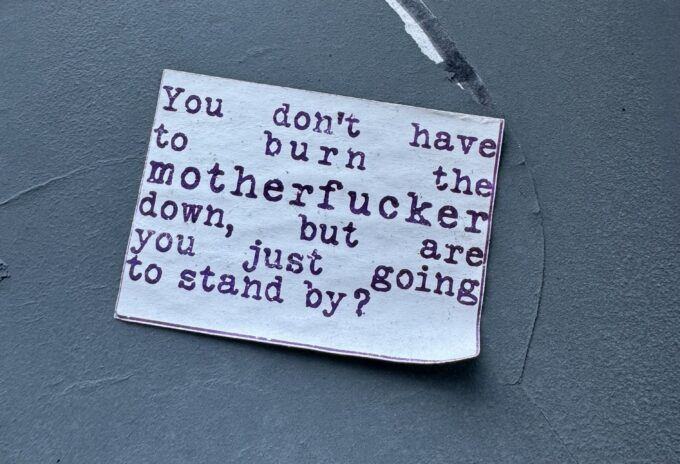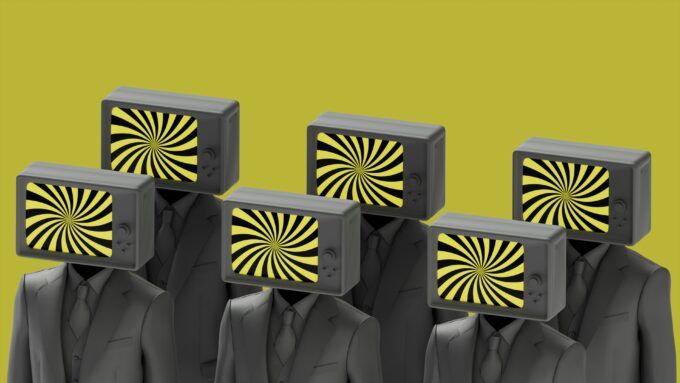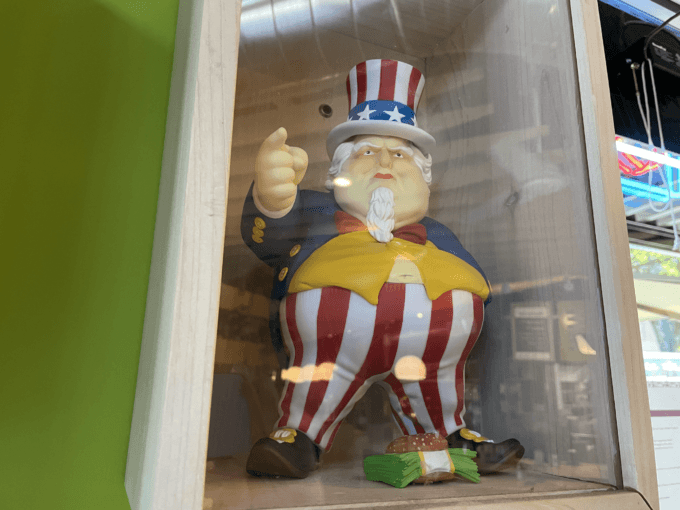
choices
Published on http://www.counterpunch.org/
“Americans have choices. And they’ve got to make a choice. And so maybe, rather than getting that new iPhone that they just love, and they want to go spend hundreds of dollars on that, maybe they should invest in their own health care.”
— Rep. Jason Chaffetz, Utah
“Obamacare will be replaced with something that actually works — bringing freedom and individual responsibility back to American health care.”
— Vice President Mike Pence
The personal choice mythos meme goes something like this: choice is an expression of personal freedom; the more choices you have, the freer you are; free markets expand an existential sense of freedom and therefore should expand into all human enterprises.
This is a powerful calculus, one whose impact is more that of a mythos than an unassailable logic. In Christianity, Eden, The Fall, and a Redeeming of the opportunity to return to Eden has a similar mythos logic, as does the dialectical movement to a stateless, classless, propertyless Communism, or on a more ludic plane, tax cuts to the wealthy “raises all boats,” even if the price of your boat was transferred to the rich so they can buy a bigger yacht.
Such mythos involves embarrassing blindness. For instance, an exercising of personal choice’s ties to free market principles ties it also to an “any means necessary” competition for profit. The Federal government is at once an obstruction, a regulator and prosecutor, while profit becomes a justifiable end for any enterprise. And of course, the problem with profit or surplus capital distribution as we have seen since the Reagan administration is that it extends to dividends but not wages. Whatever leverage wage earners had in the past is now a thing of the past.
There is nothing like being unemployed to obstruct your personal choices, the causes for which seem not to be traced by many to the mythos meme of choice magically connected to free markets.
The difficulty Republican are having with replacing the Affordable Care Act lies certainly in how tightly the membership is attached to “Let Markets Rule!” meme. If the ACA had not opened the door to health insurance coverage to millions, a door previously closed when the market ruled, Republicans could legislate an easy return to that rule. However, as the media informs us daily, that would not be an easy return for those newly covered by the ACA and those subvented by Medicaid, whose presence the media keeps alive, thus setting Republicans up for a charge of “meanness,” one launched by their own ruler, President Trump.
What can we take from the President’s health care tweets and his campaign promises? His involvement thus far tells us that he does not want his followers to tie him to such Congressional “meanness. At the same time health care is not a cash cow he wants to pull away, in any way, from that profiteering power block in the Republican Party, those who could launch an impeachment process.
When dealing with a president who is monetizing the office, it is a mistake to assume his own empire will not try to stick its beak, to us a Godfather expression, in a full blown market driven health care. Wage earners may have lost leverage but the Trump Empire has not.
Right now, both President and Congress have the same need: the former for an exit from and covering up of his Russian entanglements and the latter for an exit from the enfranchisements of the ACA, a return to the “good old days” of profiteering, and a cover up of the “meanness” resulting.
In both cases, the media shadows and plagues such efforts, thus providing us with cause as to the day by day assaults on the most exposing investigations of the legacy press. Detouring investigations that may expose the embarrassing and perhaps the unlawful is a mission of the Trump regime. Killing the messenger seems to be a logic that has caught on. Many are discarding any trust in the Fourth Estate because they link it to “Administrative efforts” to take power from The People and pass those on to Big Government, which is in the hands of Coastal Elites.
I could throw out the baby with the bath water and reject all of this as illusionary but I do not because we now live in a 20% democracy, which is code for a plutarchy. And within this plutarchy, economic losers find their personal freedom to choose constrained by a great deal to which their illusions of self-empowerment are blind. This blindness does not negate the influential and often determining power of the elite in a plutarchy.
Some of what is “cultural” in an elite’s view, such as political correctness, is infuriating to non-elites mostly because they see it as a constraint upon their personal choosing as to how to represent what they think. What this rebellion has shown us by way of a resurgence of incidents of malice toward others is a societal moral sense weakened by the rush away from society and toward the personal begun in the Reagan-Thatcher years.
Ironically, the same engineers of that politics impose a political correctness as a concealing bandage over the dissolution of a moral sense extending beyond one’s own interests. This decline in a social moral sense is blamed on the media messenger for bringing to our attention the malice toward others into which we have liberated ourselves.
Inequities of any kind are a great restraint and constraint upon both political liberty and existential freedom but in order to effect change the bedrock attachment to the mythos of personal choice needs to be questioned and remodeled. This attachment detaches us from any recuperation of the economics and politics of plutarchy. It is vulnerability that plutarchic forces take advantage of in every instance in which a smart resistance would damage such forces.
We are led into some very self-destructive, both societal and personal, positions regarding everything from health care and privatized education to privatized prisons and privatized warfare. Such positions can be deconstructed on their own terms, but it is the meme of choice that is the ground upon which such positions are spun and won.
The word “choice” does not mean no choice or constrained choice. It just means alternatives, or paths, are available to us. The glass is always full; it is a word like “dead” which does not hold out the choice of being “live.” There is no ambiguity with either word. No one says, “Whatya mean by the word dead?”
With “choice”, it is always “You always have a choice.” That is a mythos but an enduring one, hence also an American cultural meme.
There is no maybe you have a choice, or on such and such an occasion you have a narrow path of choice on an Interstate of constraint. Regardless of how narrow that path of choice is, maybe a tiny alley, you focus on the choice, not the wall of constraints keeping you from choosing or shaping you to choose in a certain way. But when the misfortunes pile up, you look for an escape from the burden of the freedom of your own choices. A search is made beyond cultural forces lying outside a personal empowerment. We find our “destiny.”
“Destiny” is just a bullshit word. (I use “bullshit” in the philosopher Harry Frankfurt’s usage: the bullshitter wants to persuade, mindless of what is true or false; the liar has to know what the truth really is in order to lie). You can choose your own destiny, which makes those eight men who have as much wealth as half the planet’s population feel very good. The half of the world’s population that lives on less than $2.50 a day faces the biggest obstacle to choice: “If you can’t afford it, not buying it is hardly a choice.”
This demographic also have to swallow the fact that they chose that miserable destiny. And, as Rep. Jason Chaffetz reminds us, you too can have health care if you did not choose to spend the money on an iPhone. The ubiquitous presence of Smart phones is like the ubiquitous presence of opiods and heroin. It is the nature of addictions to close down choice. You might say there are significant constraints on everyone’s freedom to choose, most especially the so-called Losers when it comes to addictions.
There is certainly a valuing that fashions our choices. We might value our bottle of fentanyl but that valuing does not mean we have chosen our addiction. Choice doesn’t materialize out of our valuing nor does choosing to have what you value automatically bring it to you, even though a 150K copies a week of The Secret announcing this particular bullshit were once being sold.
It seems that the secret to break free of any obstacles to our freedom to choose always presumes the existence of that freedom, that is, we choose to believe we are free to choose. We can do anything by this logic. We can break free of our karma, which is no more than a sum total, always being added to, of our responses to events, whether chosen or determined, by choosing to act differently to what we are karmically inclined to do. In short, we can choose to be what we are in no way now able to comprehend, feel, or conceive.
You can be you and not you at all at the moment you choose not to be you.
We even extend our choosing freedom to a “lucid” dreaming in which we can supposedly narrate and control what appears in dream. It appears in dream because consciousness cannot narrate and control it. If it could, we would not be dreaming but awake and thinking.
It seems that we cannot allow any constraints on any level to inhibit our choice mythos.
The whole Christian idea of salvation and damnation is upended or at least problematized if we admit deterrents to our freedom to choose, a situation already plaguing our legal system, which seems to be facing a steady flow of crime by the deranged. CNN reports: “Six of the eight men Arkansas planned to execute over 11 days this month are not mentally fit.” 4/2017 I hesitate to mention “the brainwashed,” religious zealots now bringing to us a kind of warfare that confounds our “rational choice” theories.
“Fate” is more of a bullshit word than “destiny” but it does provide a way out if you do not want to think you were always free to choose your own destiny and you blew it. Fate trumps karma and is thus, oddly enough, a kind of escape from karma into Fate, from which you cannot escape. Fate is a kind of universal cleanser. You can now say, when accused: “Dude, it’s Fate.”
So, “choice” is an unshakeable mythos meme that reaches widely and deeply into our cultural psyche to the point that we invent all manner of nonsense to keep it isolated from what clearly negates it. Such sophistry gets by because choice is a magical abracadabra word opening the gates of the American mass psyche and marching right in, along with whatever is riding on the word’s tails.
If you have choice, you have freedom; the more choices you have (best to multi-task here and opinionate and shop till you drop), the more free you are. So, “freedom” rides in at once on the word “choice” and because choice is personal choice, it is individual, personal freedom that is sacred.
You are not responsible for finding freedom for other people. They can find their own through their own personal choices, regardless of the fact that your choices, especially if you are elite, are obstructing their choices. But Liberals do not advocate a “tough love” regarding others and indeed make an extending individual liberty to whichever new marginalized minority appears on the scene the centerpiece of their politics.
This is no way attractive to Republicans who keep issues of choice, liberty, and freedom on a personal rather than legislative level. If you begin to connect your personal choices with their effects on society, you begin to think about the well-being of society and then the health and well being of people without health insurance and then onward to the health and well-being of the planet and other creatures on the planet. . And then you wind up a socialist.
This is not only Republican orthodoxy that government is always curtailing The People’s freedom to choose but it is an orthodoxy of The People themselves who respond to the words “freedom to choose” in the Pavlovian way that only a fully indoctrinated meme can create.
What is deliberately confused here is an existential sense of freedom with a political extension of liberty because freedom and the choices that lead to it must be kept on a personal level.
The meme instructs us that the burden of accomplishment and the determination of personal responsibility are matters of personal choice, not governmental entitlement or regulation. Bureaucracy wants to intervene in this relationship, relegating personal choice to the government, and thereby restricting personal freedom within societal and governmental boundaries. This is, in essence, the socialist mission, a mission that flies in the face of a deep, prereflective American attachment to individual determination, personal choice, and personal freedom.
And yet is a socialist and Heisenberg the only ones thoughtful about surrounding, perhaps determinant conditions we are thrown into before given any choices at all?
The law is a big obstacle to our freedom to choose. I cannot choose to kill someone, or rob their yacht and go on a cruise, or hack into their portfolio and empty it, or plagiarize, or lie under oath, or bear false witness, or covet my neighbor’s wife or his goods. And so on. Our freedom and choice runs into walls that are culturally constructed (in the Raymond Williams’s sense of culture as a whole way of life) in so far as every law is grounded in culturally established notions of legal and illegal.
Why then is it not possible that cultural conditions are always present establishing boundaries and prohibitions against our freedom?
Why is it impossible to discern that a society in which wealth and the power it obtains are severely divided are not propounding a discourse, enacting a practice and establishing institutions that defend and curate that divide?
Republicans want to return health care insurance to a totally market based system, which is what we had before Obamacare. The Libertarian faithful like Rand Paul are candid about this while most others are politic, realizing that it is difficult to pull their affected constituents back from security to insecurity. Most will be too poor to afford the beneficence of that return to market rule.
The mythos meme of choice kicks in here to point out that a return to the freedom that the market offers will replace “moral hazard” with a “will to win,” in this case “seeing what you need and buying what you want,” as Paul Ryan, another Randian tells us.
Ironically, it is not the poor who relish the challenge of misfortune as opportunities to assert their genius but those who “have made it.”
With the Winners, smart personal choices are always involved and the play of chance and favorable surrounding conditions from birth onward are never mentioned. Misfortune is always an opportunity to distinguish oneself from those who Trump said, “don’t have it.”
The crises that break the poor are for moguls always a suddenly appearing opportunity, perhaps a new marketing frontier like war or education. Everything from a robotic replacement of wage earners to global warming is thus welcomed marketing frontiers. One is not positioned so fortunately by arrangements, a causal chain, difficult to map but always fortunate by personal choice.
We know, however, that conditions slowly or immediately creating immiseration do not open the doors and windows of choice for us but box us in, limit not only what we can do but what we can think about doing. The limitations on our thinking, how smart we are, are always tied up with what is outside ourselves, what priorities and values already privileged and operating upon us in our cultural surround.
FDR affirmed the connections between democracy, choice, intelligence and education: Democracy cannot succeed unless those who express their choice are prepared to choose wisely. The real safeguard of democracy, therefore, is education.
If we are not educated so as to recognize circumstances both inhibiting choice and allowing it as well as causes of its absence, our “intelligence” is manufactured toward ends that cannot be considered personal.
If we are blind to the conditions within which we are entangled, we have nothing to do with safeguarding either the integrity of our own being or that of a political order that might best nurture such integrity. We are then not choosing but already chosen, not in a sacred mission but ensnared within the mission of profit alone.













